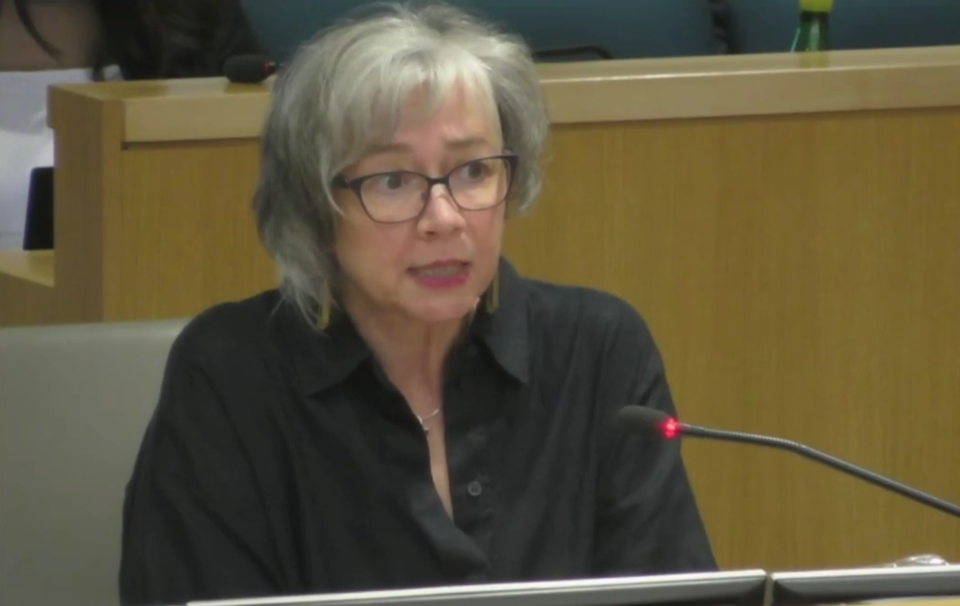B.C.’s New Democrat government signalled Wednesday it has reached the limit of how far it’s willing to go to tackle the ongoing overdose crisis, after months of getting hammered by the unintended consequences of its decriminalization and safe supply decisions.
Addictions Minister Jennifer Whiteside shot down the idea of the province purchasing illicit drugs like heroin and crystal meth and giving them to people suffering addiction, without requiring a doctor’s prescription.
The recommendation came in a new report by a BC Coroners Service death review panel, which said the province needs to dramatically ramp up safe supply and remove medical barriers.
“Any model that looks at withdrawing medical oversight from that process is not a direction that we're moving in,” said Whiteside.
Whiteside not only said no, she blindsided chief coroner Lisa Lapointe with a sternly-worded letter released to the media before the coroner had even seen it. Reporters had to read the rejection out loud to the coroner during her own press conference in order to get her reaction.
“It’s disappointing,” Lapointe said, diplomatically.
Political hardball is more like it.
New Democrats are unwilling to expend any more political capital on this file, even if overdose deaths are continuing at a record rate.
As the coroner was recommending an expansion of drug use, Solicitor General Mike Farnworth was on the floor of the legislature trying to get a bill passed to deal with public anger over the initial decision to decriminalize drugs made almost a year ago.
Farnworth was getting grilled by BC United critic Elenore Sturko, a former RCMP officer, over why his legislation wouldn’t allow police to actually move drug users along from a public space unless they arrived at the exact moment someone was consuming an illegal substance. If officers responded to a public complaint moments after someone finished, the bill left them powerless to act.
“We don’t want to be wasting the time of the police,” said Sturko.
The criticism was well-placed. Farnworth had to stand down the core of his legislation, then scramble to table his own amendments.
Sturko also had the NDP on the defensive Wednesday over its safe supply decisions.
She released a public letter demanding Farnworth widen an investigation into how a Vancouver community group called the Drug User Liberation Front (DULF) used public money to purchase illegal drugs like heroin and crystal meth from organized criminals on the dark web, in order to dispense those drugs to its own users.
The NDP, embarrassed, ordered Vancouver Coastal Health to cancel DULF’s funding.
“It’s unfortunate because they were providing essential life-saving work, but they were also breaking the law, which we will not tolerate,” Eby said Oct. 24.
But as Sturko pointed out Wednesday, several other organizations may have also broken the law.
She called on Farnworth to investigate 10 other publicly-funded service organizations that received DULF’s illegally-sourced drugs, as well as the University of Victoria, which allegedly tested those drugs before they were given to DULF’s members.
Sturko also highlighted how a top researcher at the B.C. Centre for Substance Use condoned DULF’s illegal activities, while also advising the government and the coroner on drug policy.
New Democrats are in a pickle on the DULF issue.
They’ve already publicly condemned the organization's actions, praised the police raid, and warned anyone else using public funds for illegal drugs they should expect to be prosecuted. Widening the probe to UVIC, the University of BC, the BCSU, its own ministers and other service groups would create more political headaches for New Democrats.
“The NDP has absolutely, either through wilful blindness or incompetence, turned a blind eye to a drug-trafficking network funded by the public,” said Sturko. “We want answers.”
The DULF file is only one problem with safe supply.
Numerous media reports have shown how medical-grade dilaudid is being diverted to the street where it is sold as “dillies” by those who are cashing in their safe supply to buy harder, more potent drugs.
That kind of misuse was supposed to be tracked and stopped by the province. Instead, the more than 12 medical and addictions experts on the coroner’s service death review panel Wednesday said they aren’t even sure the extent to which it’s happening. But they want to dramatically expand safe supply anyway.
The NDP government is drawing a line on how far it’s willing to go on safe supply and decriminalization, by refusing to act on the latest recommendations from the coroner,
Academics and public health officials are on one side, urging more. The elected officials, who are accountable to the public and reading the mood of the electorate, say it’s time for a pause.
In just one year, the government’s decisions have already caused a revolt from local mayors on drugs and crime, forced new public safety legislation, flooded the street with a new supply of medical-grade drugs, and sparked a police probe that could tie up all sorts of publicly-funded agencies and universities. All without reducing overdose deaths.
It’s hard to blame the NDP for its hesitancy to surge even further into the unknown on drug policy.
Rob Shaw has spent more than 15 years covering B.C. politics, now reporting for CHEK News and writing for Glacier Media. He is the co-author of the national bestselling book A Matter of Confidence, host of the weekly podcast Political Capital, and a regular guest on CBC Radio. [email protected]





